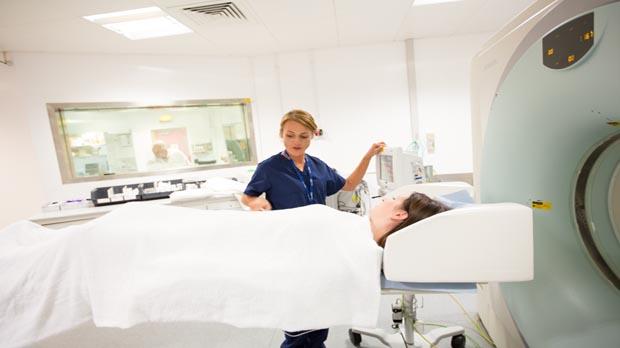
Last year in the UK over 60,000 cancer patients enrolled on clinical trials aimed at improving cancer treatments and making them available to all.
Please note - this trial is no longer recruiting patients. We hope to add results when they are available.
This study is looking at whether smoking after diagnosis with lung cancer affects your outcome.
We know from research that stopping smoking reduces risk of lung cancer. But researchers in this study believe that smoking after diagnosis may affect the course of the condition. They think it could be possible that smoking affects levels of anti cancer treatment in the blood and body tissue. We know from other laboratory research that there is a link between smoking and cancers that are more resistant to chemotherapy. And that smoking can affect oxygen levels in cancers, affecting how well radiotherapy works.
This study will observe a group of smokers and non smokers with lung cancer for up to 2 years. You will fill out questionnaires and have breath testing for a chemical found in cigarettes called carbon monoxide. The study team will also gather information about whether people are still smoking, whether their cancer has got worse or better, any treatment problems they are having and how they are. The aim of this study is to see if smoking after a diagnosis of lung cancer affects the outcome of treatment.
Please note that there used to be a second part to this study, looking at different types of smoking support. This part of the study stopped running in November 2012.
You may be able to enter this study if you
This study will recruit 2,400 people altogether.
The team will ask you questions about smoking habits from the past and now. You then breathe into a tube attached to a small hand held monitor, which measures carbon monoxide levels in your breath. The tests do not hurt, and take around 20 seconds.
You will also fill out a questionnaire which will ask about any side effects you have had and about how you have been feeling. This is called a quality of life study. The questionnaire and breath test together take less than 5 minutes. You have a breath test and fill out one of these questionnaires every time you come to clinic for your usual follow up appointments, for up to 2 years.
The team may also ask you to give a urine sample when you come to clinic. They will test this to confirm whether and how much you smoke. You do not have to give this sample if you don't want to.
After 2 years, you will not have any more breath tests and questionnaires, but the team will continue to review you in clinic, as part of your usual care.
Where possible, you will see the study team when you come for your routine hospital appointments. These will be around 1, 3, 6, 12 and 24 months.
If you are not able to travel to your clinic appointment, a nurse or doctor may be able to come to your home and take a breath test, and help you complete the questionnaire.
You will not have any side effects as a result of taking part in this study.
Please note: In order to join a trial you will need to discuss it with your doctor, unless otherwise specified.
Dr Keir Lewis
Cardiff and Vale NHS Trust
Hywel Dda NHS Trust
NIHR Clinical Research Network: Cancer
Pfizer
Swansea University
If you have questions about the trial please contact our cancer information nurses
Freephone 0808 800 4040

Last year in the UK over 60,000 cancer patients enrolled on clinical trials aimed at improving cancer treatments and making them available to all.